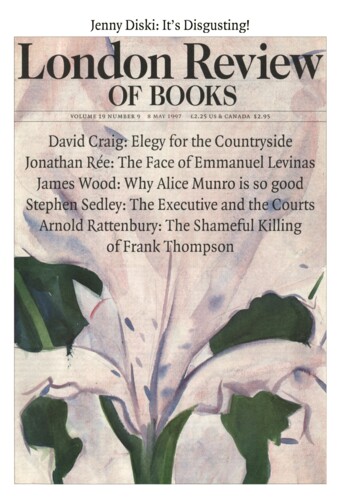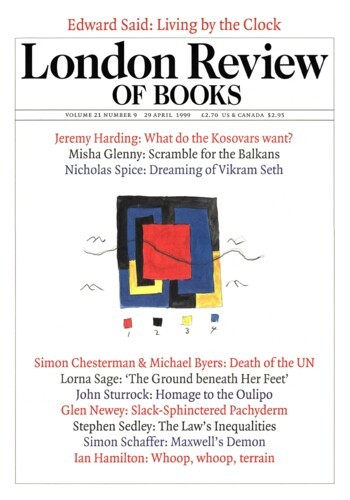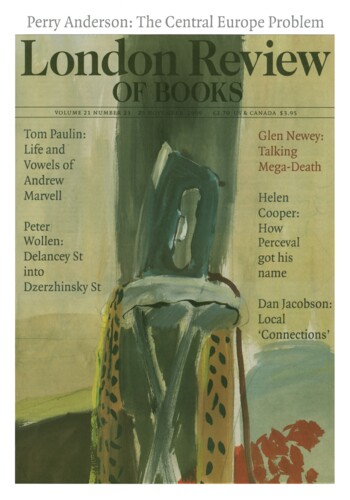Gassing and Bungling
Glen Newey, 8 May 1997
Atrip to Berlin last year offered a chance to take stock of the once and future capital of Europe, and the none too stealthy ascent of the Fourth Reich. Its monuments, largely built by foreign coolies, are rising from the ashes of the Potsdamer Platz, while, down the road, Unter den Linden retains its old Prussic astringency, as if the last fifty years had been but a waking dream. In deference to the BSE brouhaha, posters in every public eatery in town vouchsafed that the dead quadruped on offer was rein deutscher Herkunft – of pure German origin; grim photos in Der Spiegel showed British bovines being shoved into Topf-style incinerators. Irony, or even memory, was at a discount.





